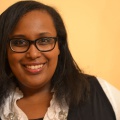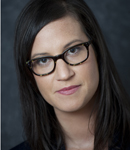Safeguarding Democracy: Innovations in Technology and Human Rights
Session Type(s): Panel
Training Tag(s): Foreign Policy & National Security, Technology / Data / Innovation
Starts: Saturday, Jun. 9 10:30 AM (Eastern)
Ends: Saturday, Jun. 9 11:45 AM (Eastern)
The future is now. Activists now have access to unlikely tools: satellite technology to deter mass atrocities in South Sudan, civil society leaders in Iran and Southeast Asia distributing encrypted media of demonstrations and geo-targeted apps that aid famine relief in East Africa and combat global human trafficking. Technology has transformed the way governments, corporations and movements around the world are held accountable, and it shapes how the world watches history unfold. With these advancements come increased scrutiny, privacy concerns and a battle for access to the new technology. How we continue to innovate and anticipate challenges will steer the future of human rights. This panel will discuss the power dynamics between movements and governments using technology as an accountability tool in global human rights, cases from the frontlines in humanitarian technology and why we need to create progressive policies that support innovation in human rights.
Moderator
Caitlin Howarth

Caitlin Howarth is Director of Leadership Development and the Democracy & Human Rights Initiative at the Truman National Security Project and Center for National Policy, where she recruits, trains and positions progressive leaders in policy, politics and defense in the Washington, DC region. Howarth previously worked as a human security analyst for the Satellite Sentinel Project, managing report production on threats to civilians in Sudan’s contested southern regions from February 2011 to May 2012, and is the former COO and National Policy Director of the Roosevelt Institute Campus Network. She holds a BA with high distinction in Political and Social Thought from the University of Virginia, and a MPP in International & Global Affairs from the Harvard Kennedy School. Howarth is a Fellow at the Roosevelt Institute and consultant to the MediCapt mobile forensic evidence collection project at Physicians for Human Rights.
Panelists
Matisse Bustos Hawkes

Matisse provides creative and strategic leadership on digital communications for WITNESS. Prior to WITNESS she was the publicist at Aperture, the fine photography foundation. She later worked at PixelPress, a multimedia company for social change where she co-produced projects such as “The End of Polio,” with UNICEF and WHO which featured the work of world-renowned photojournalist Sebastiao Salgado.
Sabrina Hersi Issa

Sabrina is the CEO at Be Bold Media, a digital agency focused on global advocacy and the co-founder of End Famine, a campaign dedicated to seeking sustainable solutions to food security and humanitarian aid assistance. Previously, she was a Program Adviser at Afghans for Civil Society, an NGO that developed women’s programs and independent media in southern Afghanistan, worked for National Public Radio, NBC News and Oxfam America. She has advised women legislators on digital engagement and social media and created the Human Rights Forum, a monthly gathering for activists and technologists. Forbes named her 30 Under 30 for Law and Policy and Washingtonian Magazine featured as part of it’s Most Powerful Women issue. She is a Truman Nation Security Partner, an adviser to Digital Democracy and proudly sits on the boards of Exhale Provoice, Web of Change and Women, Action & the Media.
Other sessions: Your Phone Is Political
Emily Jacobi

Emily Jacobi is Co-Founder and Executive Director of Digital Democracy, a New York-based nonprofit that works globally to empower marginalized communities to harness technology to fight for their human rights. Beginning her career as a youth journalist, at the age of 13 Emily reported from Havana, Cuba on the lives of young Cubans during the Troubled Period. She has since worked with marginalized communities including migrant workers, women’s groups, refugee youth and others on media & technology projects in Latin America, Sub-Saharan Africa, Southeast Asia and the United States. Prior to founding Digital Democracy in 2008 she worked at Internews Network, AllAfrica.com and Y-Press.
Emily has presented on the intersection of technology, civic engagement and human rights to US Congress, the State Department, the United Nations, and numerous universities and technology conferences. She has written extensively on the role of mobile phones and technology in Burma/Myanmar.
Lauren Wolfe

Lauren Wolfe is an award-winning journalist who has written for publications from The Atlantic to The International Herald Tribune. She is currently the director of Women Under Siege, a project on sexualized violence in conflict spearheaded by Gloria Steinem at the Women’s Media Center in New York. (The project includes a live map of sexualized violence in Syria, WomenUnderSiegeSyria.crowdmap.com.) She serves on the advisory committee of the Nobel Women’s Initiative International Campaign to Stop Rape & Gender Violence in Conflict. Previously, she was the senior editor of the Committee to Protect Journalists, where she focused on journalists and sexual violence. Her CPJ report “The Silencing Crime”—for which she interviewed 50 journalists around the world—broke ground in documenting the issue. Wolfe spent three years at The New York Times reporting on September 11th for Times’ books, including 102 Minutes: The Fight to Survive Inside the Twin Towers.